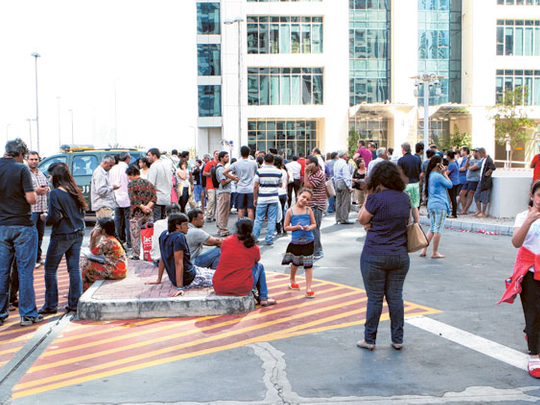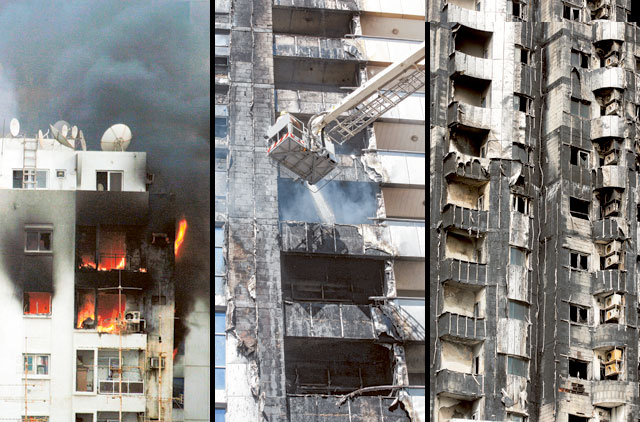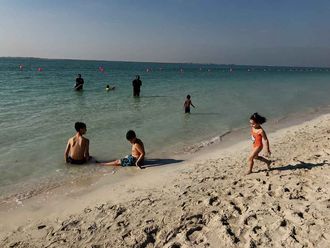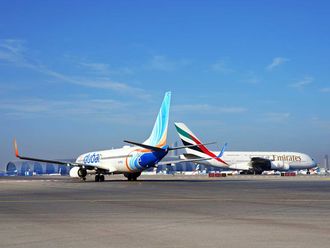
Dubai: Authorities in the UAE are planning to crack down on flammable building materials suspected to have fueled fires in a series of high-rise infernos this year, Gulf News has learnt.
Hundreds of tenants lost homes and belongings in at least four separate blazes that engulfed towers in Dubai,Sharjah and Abu Dhabi recently, in what has been an usually high rate of such incidents in recent years.
In the latest incident, a fire erupted in Tamweel Tower in Jumeirah Lakes Towers on Sunday, forcing scores of residents out on the street with only the clothes left on their backs.
An investigation is underway to determine the cause of the fire and to assess why the flames licked downwards towards the lower floors.
An official from Dubai Police Department of Criminal Evidence and Criminology said yesterday that thecause of Tamweel tower fire is still under investigations.“It could be electrical short ciruiting that cause the fire,” an official said, adding that details about the fire incident will be declared soon. “We are stll investigating the how and whey the fire broke in the building,” officials said.
Civil defense and municipality officials, as well as independent fire safety experts, suspect flammable cladding panels on the building exteriors had spread the flames in earlier cases.
They are coordinating efforts to revise a unified UAE-wide fire safety code that could ban non fire-rated cladding on high-rises when it comes into effect, expected to take place by the end of this year.
Currently, authorities in Abu Dhabi, Dubai and Sharjah are separately taking steps against the use of such panels, typically made from a “sandwich” of two metal sheets holding a plastic filling, Gulf News investigation revealed.
Dubai Municipality had told building contractors early this year that only fire-retardant panels can be used to complete facades of residential and office towers.
The circular was issued by the municipality on April 29, a day after a fire ravaged a 40-storey tower in Sharjah.
One expert, who did not wish to be named, then estimated that more than 500 skyscrapers across the UAE are enclosed with non fire-rated cladding panels.
It added that materials used on the facades of buildings should carry a conformity certificate from the Dubai Central Laboratory attesting that the materials are up to standards set by Dubai Municipality and Civil Defence.
According to another set of documents, also obtained by Gulf News in May, under-construction Sharjah towers nearing completion are not to be approved by municipality inspectors as completed unless contractors can prove the exterior cladding will not catch fire.
The development followed the Al Baker Tower fire in January and the Al Tayer Tower inferno in April, both in Sharjah.
In Abu Dhabi, high-level meetings between public and private sector experts have been called for by the Department of Municipal Affairs (DMA) to review fire safety guidelines that form part of the existing Abu Dhabi Building Codes.
Panel recommendations are to be included in upcoming editions of the code, but “any serious threats in current practice” flagged during meetings could induce the DMA to issue immediate guidelines, a DMA official had said earlier this year.
The Codes – which could possibly include rulings on the cladding panels – are expected to become a mandate by mid-2013.
In Abu Dhabi, a construction permit is only issued if a project has been reviewed and checked by municipal engineers, who determine if the proposed materials comply with fire standards, Khalfan Al Nuaimi, director of building permits at the Municipality of Abu Dhabi City, had earlier told Gulf News.
In August, a new resolution issued by the Cabinet stated that federal entities and government departments may not issue or renew a facility’s licence unless the applicant can produce a fire safety certificate from the Directorate of Civil Defence.
His Highness Shaikh Mohammad Bin Rashid Al Maktoum, Vice-President and Prime Minister of the UAE and Ruler of Dubai, had issued the resolution – No. 24 for the year 2012, covering the organisation of Civil Defense services which applies to all buildings and facilities in the UAE.
Privately-owned residential houses are excluded from the resolution, but are governed by existing municipality and civil defence regulations.
with input by Bassma Al Jandaly, Senior Reporter













